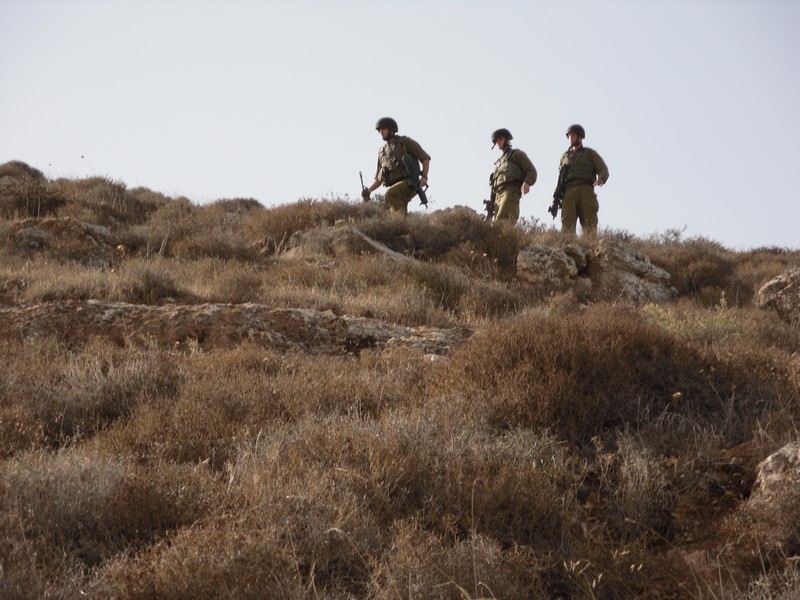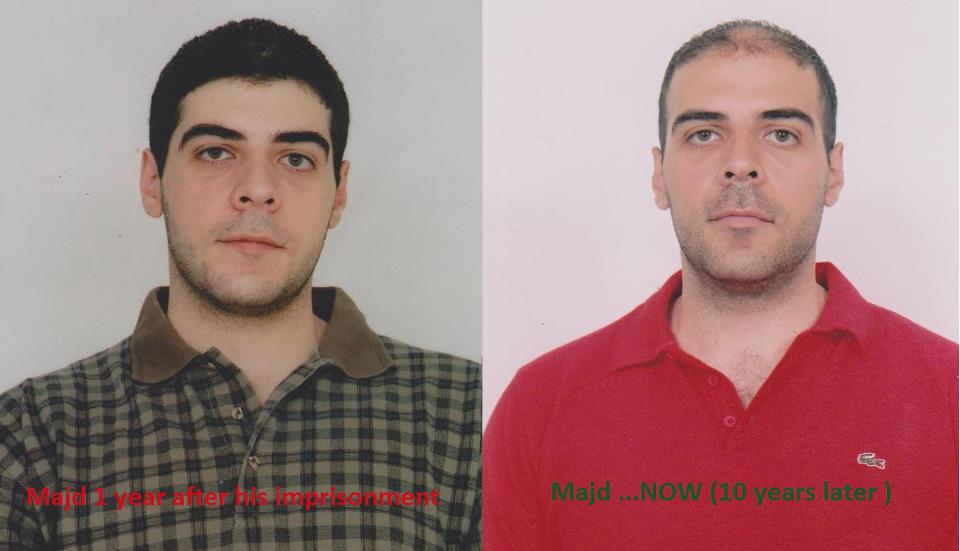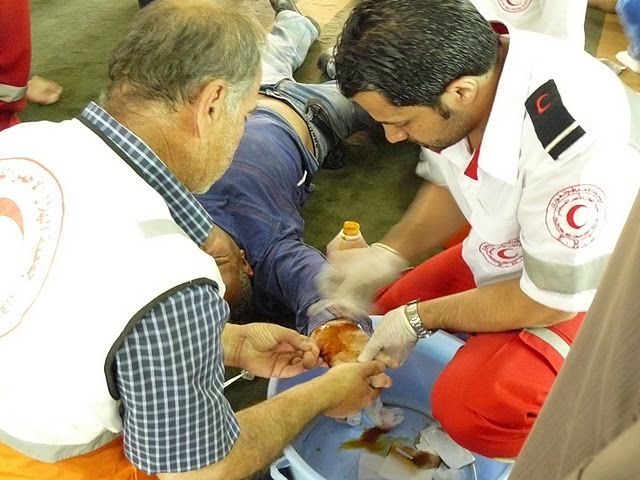Month: October 2011
-
Israeli military and Zionists ambush olive harvest in Beit Furik
21 October 2011 | International Solidarity Movement, West Bank The Palestinian family El Jobor was unsuccessful in their attempt to harvest olives today as they met resistance from Jewish settlers and Israeli soldiers originating out of the Itamar settlement. Accompanied by ISM volunteers the family climbed the hillside above Beit Furik and marched through the olive…
-
Israeli mistreatment of Palestinian political prisoners: Free Majd Ziada now!
21 October 2011 | Prisoner of the Day Campaign Majd Ziada was barely out of his teens when he got arrested by the Israeli Occupation Forces. It was at the height of the second Intifada in 2002 when the Israeli army during its collective arrest campaign detained Majd on the evening of the Israeli invasion…
-
Permission to enter their own lands: Kufr Qaddoum rampaged again by military
21 October 2011 | International Solidarity Movement, West Bank In the village of Kufr Qaddoum the people held a demonstration for the 17th Friday in a row. The demonstration started around 11:30 AM in the center of the village and consisted of approximately 80 people. The procession only made it to a barbed wire that…



